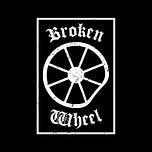- Again, I saw vanity under the sun: one person who has no other, either son or brother, yet there is no end to all his toil, and his eyes are never satisfied with riches, so that he never asks, “For whom am I toiling and depriving myself of pleasure?” This also is vanity and an unhappy business. -
This should sound a bit familiar.
Right, we’ve already begun to hit on this theme. Solomon uses the next couple of verses to show that work and riches do not solve all our problems.
The vanity he is discussing? That people toil for no pleasure and for no person.
Since we’ve spent some time talking about this already, I’d like to use this post to talk about one of my favorite stories.
A Christmas Carol by Charles Dickens.
My mother loves Christmas and has close to 47 traditions that need to be followed during the Holidays. I have one that is by far and away my favorite.
Watching The Muppet’s Christmas Carol.
That movie, in its own cute and friendly way, tells the story we all know. It’s quintessential with Christmas itself.
Scrooge comically exemplifies the man in our verses. When asked to donate early on in the story, he asks in mock concern if something has happened to the poor houses.
Not an ounce of compassion or humanity seems to remain with our protagonist. How did he get to the point where he couldn’t even accept an invitation from his only living family on Christmas Day?
Now, Dickens is not one of those writers who is “subtle.” I mean, he named the character Scrooge for goodness’s sake.
The purpose for this is to act as a shorthand. By telling us exactly who Scrooge is in just his name alone, we know what the story is about.
This may lead to some simplistic storytelling, but it also allows the story to communicate its truth and show us scenes that wouldn’t make it into more realistic dramas.
My favorite example of this is the visit of the Ghost of Christmas Past.
If you’ve just watched the Muppet’s version or haven’t read the story itself, you may have a very different idea on how Scrooge’s experience with the spirit ends.
After seeing his past and confronted by the fact he sacrifices love to money, Scrooge grows weary, and begs to see no more.
He then looks upon the spirit and within its face sees a composite of all the faces that have “haunted” him from Christmases past.
The ghost wears an extinguisher cap (used to put out candles), which Scrooge grabs to snuff out the spirit and therefore the visions.
The spirit collapses beneath the cap, losing all mass in the process. Despite the face being hidden, Scrooge cannot stop the light from emanating out from underneath the cap.
What is the idea here? You can stop looking at what haunts you in the past. You can do so for years building up walls of resentment and hate.
But, your conscience will never stop illuminating your failures that you haven’t made peace with.
What should you do? Whether career or any other action taken in your life, ask yourself genuine and honest questions about your motives.
Pray to God to reveal them to you and teach you how to overcome them.
If you do this, you will not live a perfect life, but you can know you loved others along the way.















Share this post